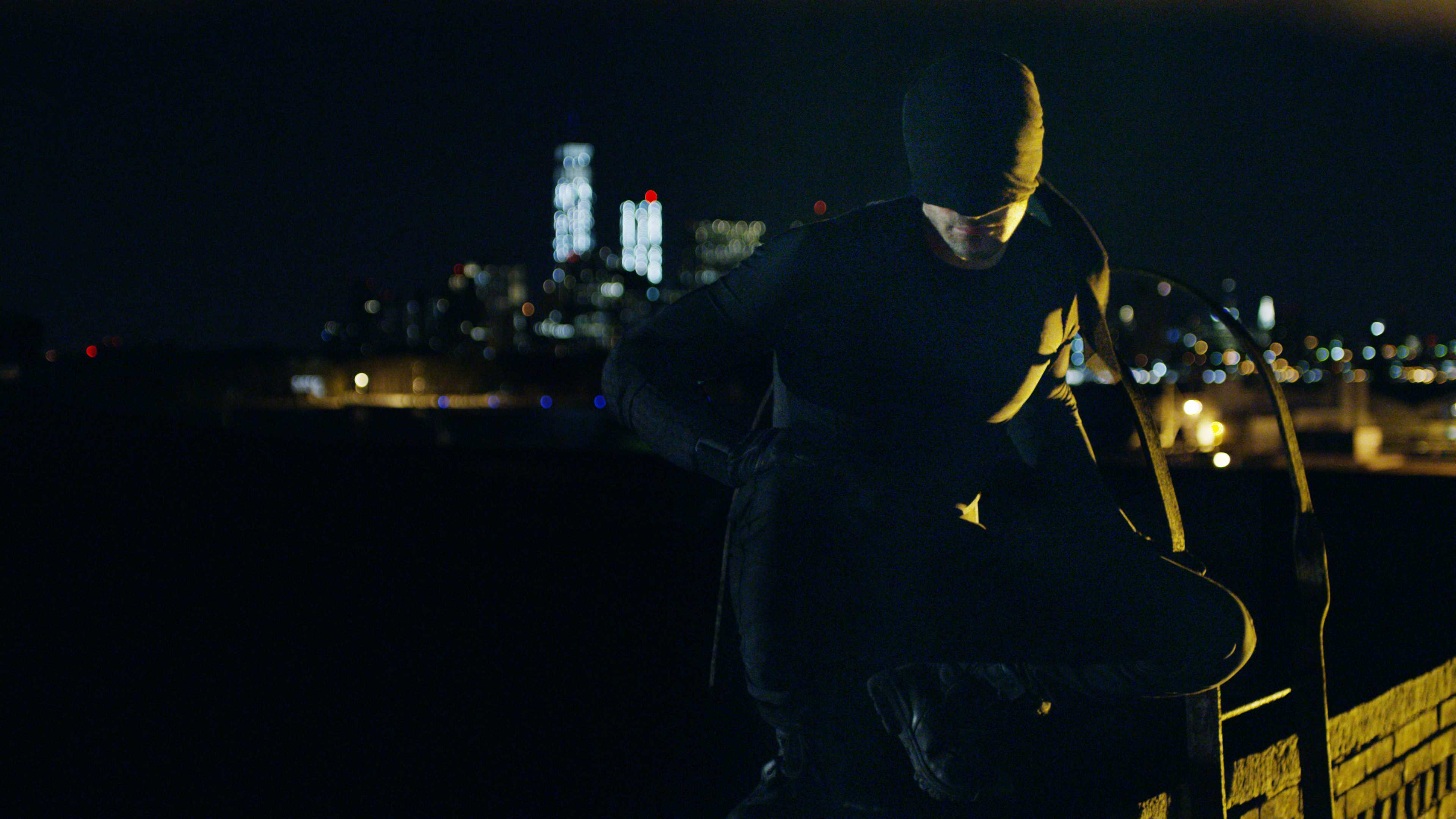 The most immediately noteworthy thing about Marvel’s new Daredevil series, the first of five planned series for Netflix, is how little it feels like the rest of Marvel’s cinematic universe. Netflix lists Daredevil with a TV-MA rating, and the show earns that rating with nearly every episode, portraying a gritty and violent Hell’s Kitchen. Even the texture of the image, captured with late-Michael-Mann inspired low-light digital photography, creates a gritty canvas for the show to work on. With an emphasis on street-level crime and political corruption, Daredevil never comes across as a series that coexists with colorful Gods and superheroes like Thor and Captain America.
The most immediately noteworthy thing about Marvel’s new Daredevil series, the first of five planned series for Netflix, is how little it feels like the rest of Marvel’s cinematic universe. Netflix lists Daredevil with a TV-MA rating, and the show earns that rating with nearly every episode, portraying a gritty and violent Hell’s Kitchen. Even the texture of the image, captured with late-Michael-Mann inspired low-light digital photography, creates a gritty canvas for the show to work on. With an emphasis on street-level crime and political corruption, Daredevil never comes across as a series that coexists with colorful Gods and superheroes like Thor and Captain America.
Yet, from a narrative standpoint, they DO coexist. Multiple mentions of the “Battle of New York” make their way into the story, along with some newspaper headlines and plot-points. Much of Hell’s Kitchen’s redevelopment, spearheaded by Wilson Fisk (known as Kingpin in the comics, although never referred to that way here) is supposedly due to the damage that occurred in the first Avengers movie. Even if the characters only make one or two passive references to Captain America and The Hulk, the events that drive Daredevil can be traced back to their actions.
Even so, it’s nearly impossible to imagine seeing Loki and the Chitauri flying across the sky and raining destruction, even after a character refers to an alien origin by saying that their home is “a considerable distance farther than China”. It’s an odd moment in an otherwise tonally-consistent series. This isn’t a story about Gods and aliens and super-scientists, it’s a story about a blind guy who goes out at night and gets beaten, stabbed, and sliced up on a regular basis because he believes he can make the city a better place.
That love and belief in one’s home city is the thematic constant of Daredevil. Every major character, from Daredevil/Matt Murdoch to Foggy Nelson to Karen Page to Wilson Fisk to Ben Urich, believes that they are doing the right thing. They have their conflicts, both internal and external, but their ultimate goal is never in question: they want the best for Hell’s Kitchen.
This conflict of methods rather than goals is what makes Daredevil such a pleasant surprise, and it gives Daredevil and Wilson Fisk something of an inverted Batman-Joker relationship. When fans and critics say that Batman and the Joker have as much in common as they have in differences, they’re generally referring to the fact that they are both obsessive mad men, with one fixated on justice and the other on chaos. With Murdoch and Fisk, you have a “hero” who wants to clean up Hell’s Kitchen by directly going after bad people, and a “villain” who wishes to clean up the city by reforming it at the highest levels, regardless of any moral concerns. Both men step outside the law, and both want the same thing, but their paths are diametrically opposed to one another.
While the “dark, gritty superhero” angle has been over-played in recent super hero movies and could have easily felt that way here, Daredevil does a very good job of working its more R-rated material into its story without drowning everything in darkness. The characters are generally likable: they joke with one another, have actual feelings, and Murdoch rarely comes across as the broody anti-hero. The 13-episode run also plays in Daredevil’s favor. It contains enough episodes to tell a complete arc with Murdoch and Fisk, but remains short enough that the writers never feel like they’re dragging their feet. Each episode has its own compelling mini-arc, something that a lot of modern shows lose in their drive to become more “serialized.”
It would be easy to avoid Daredevil based on Marvel’s other show, Agents of SHIELD. While SHIELD is often entertaining and has had a few particularly strong runs of episodes, it lives and dies based on the Marvel movies it branched out from. Even with a cast that has come into its own, it always feels like a cross-media promotional tool, used to hype up current and future movies. Daredevil succeeds by stepping out of the shadow of its big screen siblings and forging its own identity. It is a confident first step into a brand new Marvel universe that can exist, largely on its own, on Netflix.